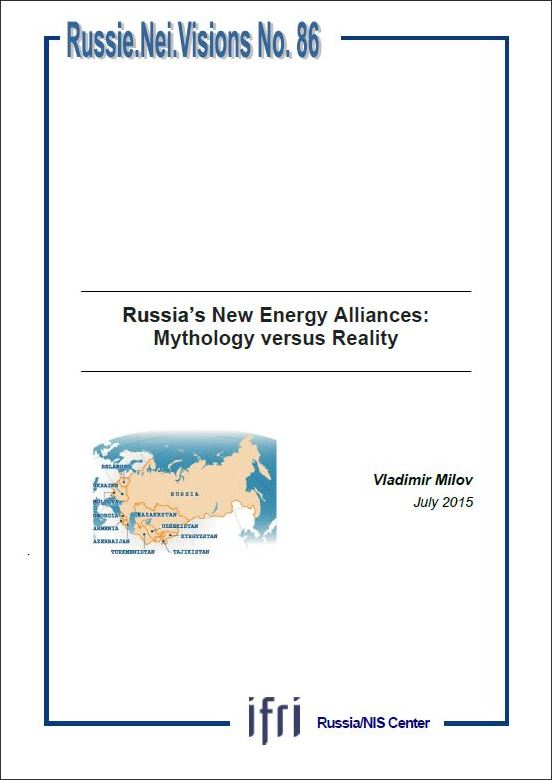Russia’s New Energy Alliances: Mythology versus Reality

This brief paper analyzes the energy relations between Russia and its “new” energy partnerships – with China and Turkey – that the Kremlin tends to publicly promote as an alternative to energy relations with the West.
The past 12 to 15 months have been marked by intensive negotiations, summits, and memorandums of understanding between Russia and these “new” partners. However, the progress is insufficient to merit talk about relationships of a truly global scale, and the many problematic issues indicate that these partnerships are working to only a limited extent. An examination of the Sino-Russian and Turkish-Russian partnerships shows that neither of these new strategic partners is ready to engage in Russia’s globally oriented energy games – instead they want to pursue their own pragmatic energy interests. The Russian attempts to instigate tectonic shifts in the energy markets through partnerships has failed, and both the “Power of Siberia” and “Turkish Stream” projects are rapidly turning into very localized bilateral stories, which are not truly significant in the context of a broader market picture.
Vladimir Milov is a Russian politician, publicist, economist and energy expert. He is a former Deputy Minister of Energy of Russia (2002), adviser to the Minister of Energy (2001–2002), and head of the strategy department at the Federal Energy Commission, the natural monopoly regulator (1999–2001), and founder and president of the Institute of Energy Policy, a leading independent Russian energy policy think tank (since 2003).
Download the full analysis
This page contains only a summary of our work. If you would like to have access to all the information from our research on the subject, you can download the full version in PDF format.
Russia’s New Energy Alliances: Mythology versus Reality
Related centers and programs
Discover our other research centers and programsFind out more
Discover all our analysesRussia, the Palestinians and Gaza: Adjustments after October 7th
The Soviet Union (USSR), and subsequently the Russian Federation as its internationally recognized legal successor, has consistently sought to play a visible role in efforts to resolve the Israeli-Palestinian conflict.
Deathonomics: The Social, Political, and Economic Costs of War in Russia
The report attempts to outline and examine a truly new phenomenon in Russian society, dubbed “deathonomics”—the making of a mercenary army against the backdrop of the Kremlin’s war in Ukraine, eventually replacing both the Soviet (conscript) and early new Russian (contract) armies. It notes that, by the end of 2023, this trend had turned the military service into one of the highest-paying professions in the country, something not seen in Russia on such a scale since the late 17th century.
Russia's Asia Strategy: Bolstering the Eagle's Eastern Wing
Among Russia’s strategic priorities, Asia traditionally played a secondary role compared to the West. In the mid-1990s, then Foreign Minister Yevgeny Primakov initiated a rapprochement with China and India. Then, in 2014, deteriorating relations between Russia and the West prompted Moscow to begin its “great pivot to the East”.
Kazakhstan After the Double Shock of 2022: Political, Economic and Military Consequences
The year 2022 represented a dual shock for Kazakhstan. In January, the country faced its most severe political crisis since independence, followed in February by Russia’s full-scale invasion of Ukraine, which cast uncertainty over the borders of post-Soviet states. These consecutive crises profoundly shaped Kazakhstan’s domestic and foreign policy.











